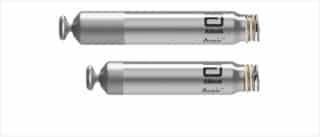
Hot, humid weather is unpleasant for everyone, but it can be especially dangerous for people living with atrial fibrillation, or AFib. Being outside in extremely hot weather can increase your chances of an arrhythmia episode; and with temperatures averaging in the high 80’s to low 90’s during summer, it’s important to keep your heart health in mind when enjoying any outdoor activities.
How Heat Stresses Your Heart
Your body gets rid of excess heat in two ways, both of which put stress on the heart. Evaporation, or the act of sweating, makes our bodies feel cooler. It also removes sodium, potassium, and a number of other minerals that are crucial for normal heart rhythms.
With radiation, on the other hand, your body moves more blood to the surface in order for it to cool. This causes your heart to work harder and faster on a day which it may already be working at full capacity.
Heart Conditions Affect Your Cooling Ability
Your medication may make hot summer days even more dangerous for your heart. If you’re on beta blockers, your heart is artificially slowed. This limits the heart’s ability to move blood for heat exchange, and may cause it to work harder. Diuretics make dehydration even worse, causing you to lose minerals you need for a healthy heart.
In addition to your medication, heart problems themselves can delay or reduce your body’s ability to shed heat. If you have heart failure, or are on the verge of heart failure, your heart needs to do extra work to shed that heat, which could push your heart into arrhythmia. It can also cause a drop in blood pressure which can result in dizziness, fainting, or falls.
Ways to Beat the Heat if You Live with Afib
It’s all about counteracting the stress nature puts on your body during a spell of hot weather. The first step is to keep hydrated. You may be dehydrated without even feeling thirsty, so it’s important that you drink water on a regular basis throughout the day. Drink a small glass of water every hour, and avoid alcohol or juice, which make dehydration worse.
Stay indoors where there is air conditioning during extreme heat. Fans may make you feel cooler, but they don’t actually change the temperature around you. If you have air conditioning, stay in the house. If not, go to a friend or relative’s house, a mall, a grocery store, or even a movie to get out of the worst of the heat. Cool showers or baths throughout the day can also keep the body’s temperature down.
Exercise is good for your heart, but make sure to schedule your workouts during times of the day when the sun is not is not directly overhead, such as early mornings or before dusk. When in doubt, opt for a workout that can be done indoors.
It’s important to be proactive and keep your heart safe during the hottest days of summer. If you, or a loved one are living with AFib and need to discuss any heart-related issues, contact Heart Rhythm Consultants, P.A. Dr. Dilip Mathew Board Certified in Cardiology & Cardiac Electrophysiology and has been serving patients in Sarasota and surrounding areas for over a decade.



